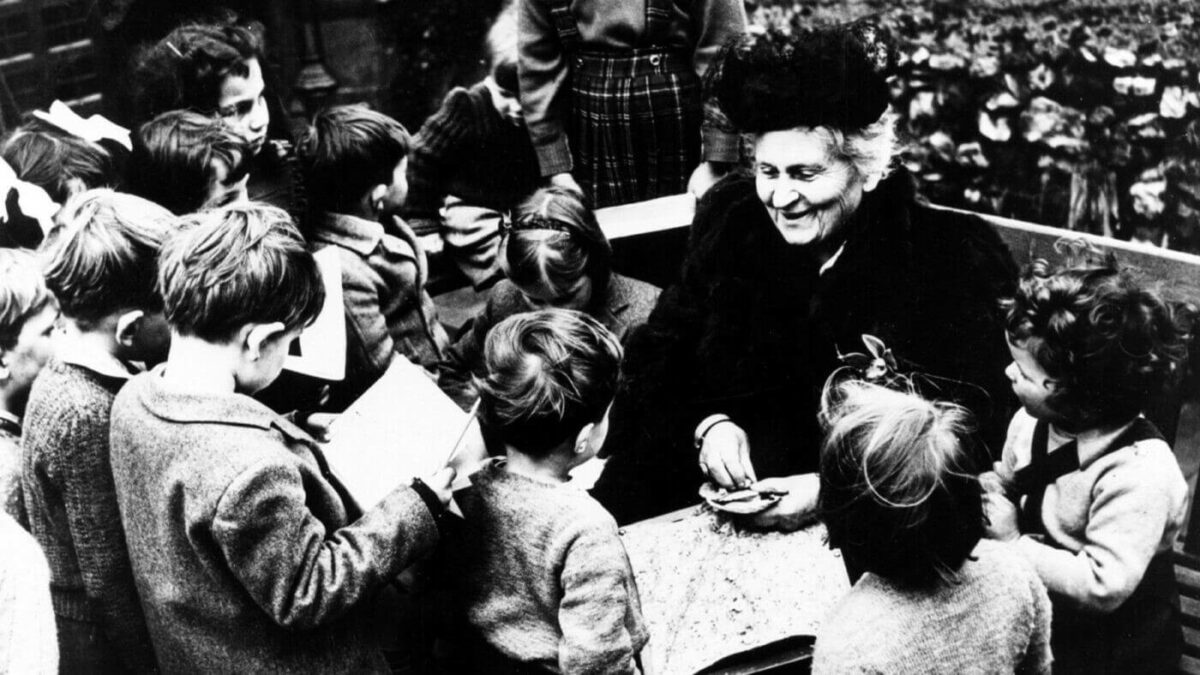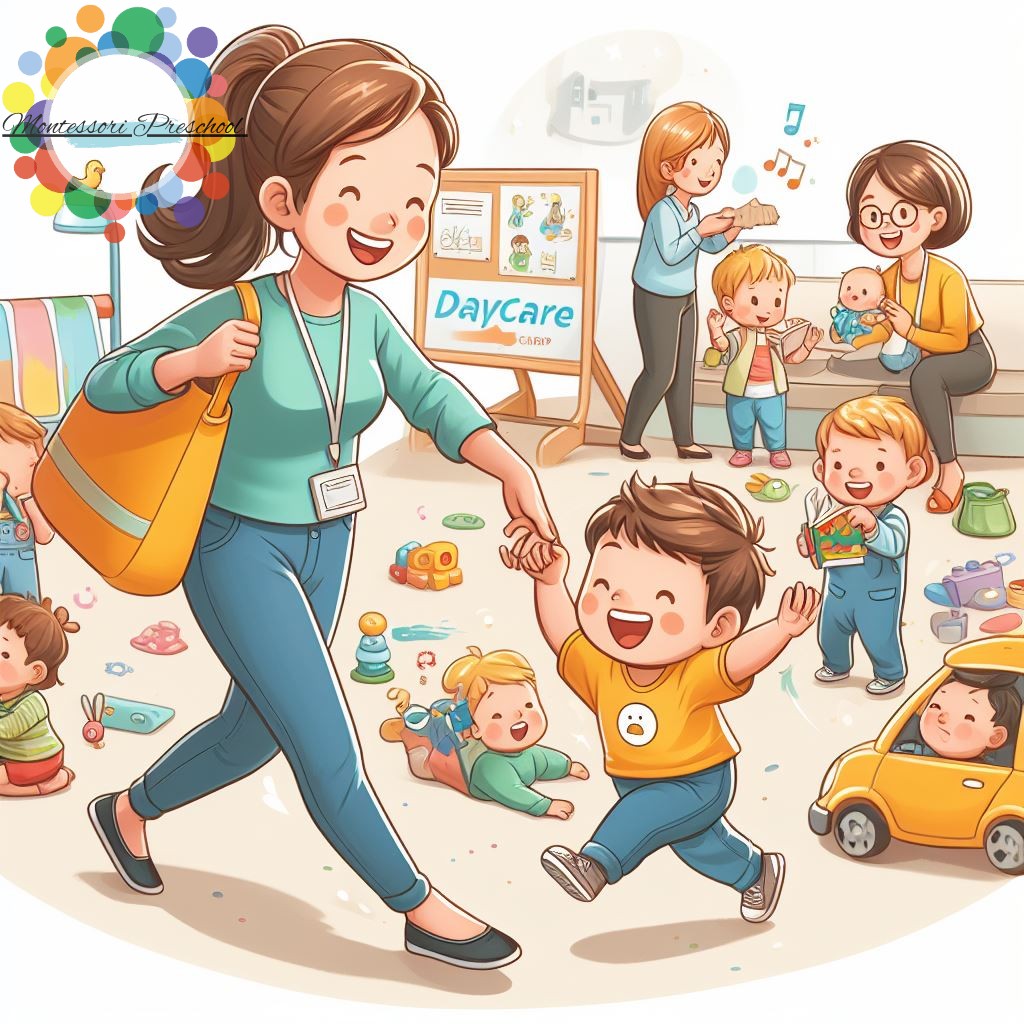
Maria Montessori, an Italian physician and educator, is widely recognized as the founder of the Montessori method of education. Her objective when she created her preschool was to provide a learning environment that helps children develop physically, emotionally, mentally, and socially. She believed in respecting children and empowering them to learn and grow independently. Through the Montessori method of education, she aimed to foster individual achievement and self-discovery in each child.
The Montessori Method: A Holistic Approach to Education
Maria Montessori believed that education should be a holistic process, encompassing the physical, emotional, mental, and social aspects of a child’s development. Her objective was to create an educational system that nurtures the whole child, allowing them to reach their full potential in all areas of life.
Creating a Prepared Environment: The Role of the Teacher
In the Montessori method, the teacher plays a crucial role in creating a prepared environment that supports the child’s natural development. The teacher’s objective is to observe and guide the child, rather than imposing their own ideas or agenda. The learning environment is carefully designed to promote exploration, independence, and self-discipline.
Hands-On Learning: The Importance of Sensorial Materials
Maria Montessori recognized the importance of hands-on learning and the role of sensorial materials in a child’s educational development. Her objective was to provide children with concrete materials that they can manipulate and explore, allowing them to engage their senses and develop cognitive and motor skills.
Mixed-Age Grouping: Fostering Social Development
One key aspect of the Montessori method is the practice of mixed-age grouping. Maria Montessori believed that children learn best when they have the opportunity to interact with peers of different ages. By placing children of different age groups in the same classroom, she aimed to foster social development, cooperation, and empathy among the children.
Individualized Instruction: Meeting the Unique Needs of Each Child
Maria Montessori’s objective was to create an educational environment that recognizes and meets the unique needs of each child. In the Montessori classroom, children are given the freedom to choose their activities and work at their own pace. The teacher provides individualized guidance and support, tailoring instruction to the specific interests and abilities of each child.
A Focus on Practical Life Skills: Empowering Independence
Another key objective of Maria Montessori’s preschool was to empower children with practical life skills. Practical life activities, such as pouring water, buttoning clothes, and sweeping, are an integral part of the Montessori curriculum. These activities not only develop fine motor skills but also teach children important life skills and foster a sense of independence and self-confidence.
Cultivating a Love for Learning: Intrinsic Motivation
Maria Montessori believed that children are naturally curious and have a natural love for learning. Her objective was to create an educational environment that preserves and nurtures this love for learning. In the Montessori classroom, children are encouraged to follow their own interests and passions, allowing them to experience the joy of discovery and intrinsic motivation.
Respect for the Child: Nurturing Self-Esteem and Confidence
Central to Maria Montessori’s objective was the belief in respecting children as individuals. She recognized that each child is unique and has their own strengths and weaknesses. Her preschool aims to nurture self-esteem and confidence in children by providing an environment where they are valued, respected, and supported in their learning journey.
Benefits of the Montessori Method
The Montessori method of education has gained recognition and popularity worldwide due to its many benefits for children. Research and anecdotal evidence have shown that children who attend Montessori schools often demonstrate superior academic performance, social skills, and overall well-being.
Supporting Cognitive Development: A Solid Foundation
The Montessori method provides children with a solid foundation in various cognitive skills, such as problem-solving, critical thinking, and creativity. The focus on hands-on learning and individualized instruction allows children to develop a deep understanding of concepts and encourages them to think independently.
Enhancing Social Skills: Collaboration and Empathy
Through mixed-age grouping and a strong emphasis on social interaction, the Montessori method fosters the development of essential social skills. Children learn how to collaborate, communicate, and empathize with their peers, as they work together on projects and engage in group activities.
Encouraging Independence and Responsibility
One of the key objectives of Maria Montessori’s preschool was to promote independence and responsibility in children. The Montessori environment allows children to take charge of their own learning and daily tasks, empowering them to become self-reliant individuals who can make responsible choices and take initiative.
Nurturing a Love for Learning: Lifelong Learners
The Montessori method aims to cultivate a love for learning that extends beyond the preschool years. By providing children with the freedom to pursue their own interests, the Montessori environment instills in them a lifelong passion for learning and a curiosity about the world around them.
Fostering Emotional Intelligence: Self-Awareness and Regulation
Emotional intelligence is a crucial aspect of a child’s development, and the Montessori method recognizes its importance. By creating an environment that encourages self-awareness, self-expression, and emotional regulation, the Montessori approach helps children develop strong emotional intelligence, leading to better mental well-being and positive relationships.
Developing Fine and Gross Motor Skills: Practical Life Activities
The practical life activities in the Montessori curriculum play a significant role in the development of fine and gross motor skills. Through activities such as pouring, cutting, and manipulating objects, children refine their motor skills, coordination, and hand-eye coordination.
Conclusion
Maria Montessori’s objective when she created her preschool was to provide a comprehensive learning environment that promotes the physical, emotional, mental, and social development of children. Through the Montessori method of education, she aimed to foster individual achievement, self-discovery, and a love for learning in each child. The benefits of the Montessori method, such as enhanced cognitive skills, social development, independence, and emotional intelligence, have made it a widely regarded and highly effective educational approach. By embracing Maria Montessori’s objectives, preschools can create nurturing and empowering environments that lay a strong foundation for a child’s lifelong learning journey.



